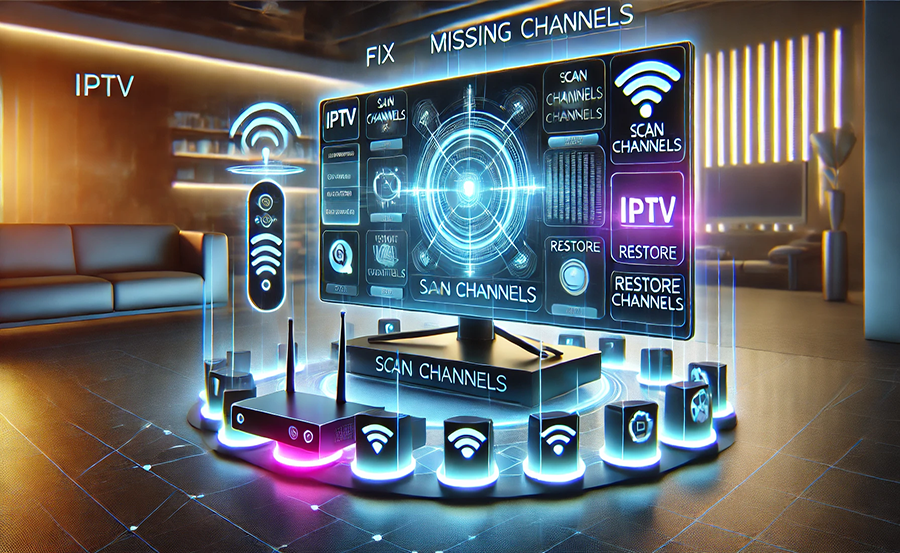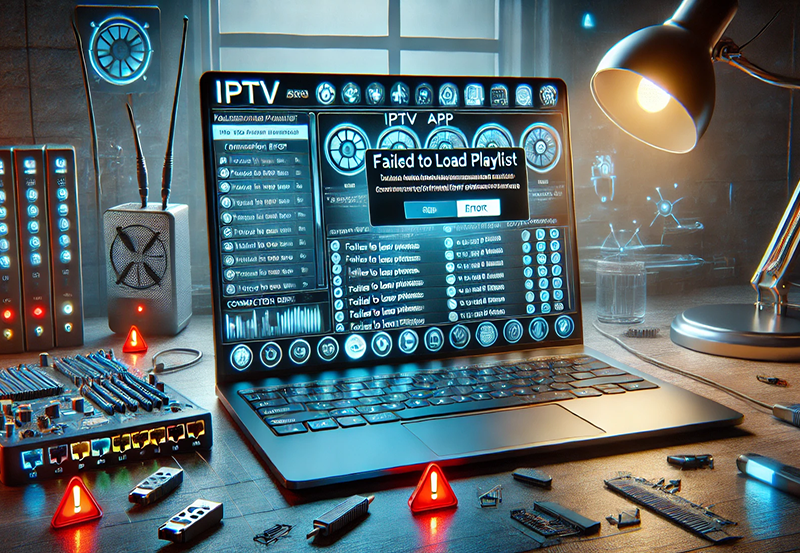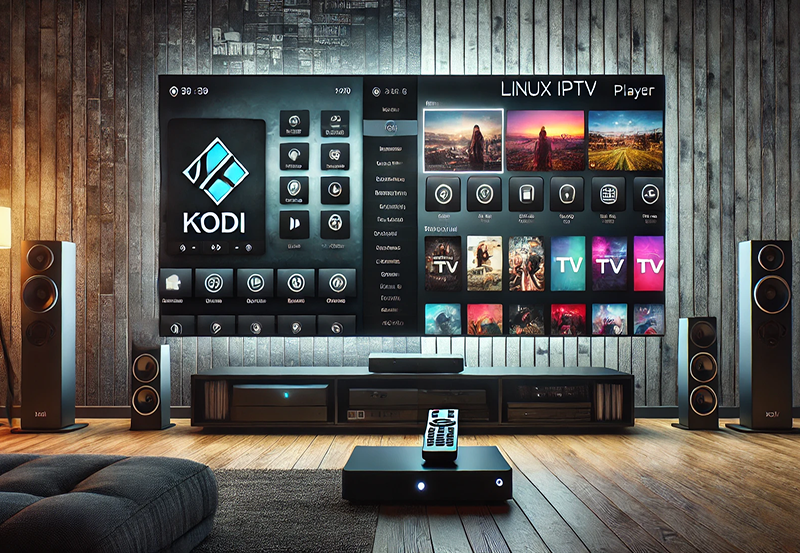Experiencing IPTV issues can be incredibly frustrating, especially when you’re in the middle of an exhilarating show or crucial sports event. In today’s fast-paced digital world, IPTV services have revolutionized how we consume content, offering flexibility and a vast array of choices. However, like any technology, IPTV can sometimes encounter glitches that leave users puzzled and annoyed. Whether you’re utilizing IPTV for Android devices or global IPTV services, comprehending the reasons behind these issues and knowing how to rectify them is essential. This guide explores common problems and provides practical solutions to enhance your IPTV adventure.
Buy 1 Year IPTV Subscription and Enjoy Unlimited Content
Understanding the Basics of IPTV
Before diving into troubleshooting, it’s beneficial to have a foundational understanding of what IPTV is. IPTV, or Internet Protocol Television, enables users to stream live and on-demand content via the internet, bypassing traditional broadcast methods. This innovation allows viewers to watch their favorite shows whenever they please, transforming how we experience television.
How IPTV Works
IPTV functions by transmitting data packets over an internet connection to your viewing device. This process involves several components: a host server, a reliable internet connection, and a compatible device such as a smart TV, smartphone, or tablet. Unlike conventional TV services, IPTV doesn’t rely on satellites or cable networks, making it a more versatile option.
Benefits of Using IPTV
IPTV offers numerous advantages over traditional TV services. These benefits include:
- Access to a wide range of channels from across the globe.
- No need for restrictive contracts often associated with cable TV.
- The ability to customize your viewing experience according to your preferences.
- Flexibility to watch content on multiple devices, including mobile devices.
Common Reasons Why IPTV Stops Working
There are several reasons why your IPTV service might not function as expected. Identifying the root cause can help you apply the proper fix and get back to enjoying your favorite shows seamlessly.
Poor Internet Connectivity
One of the most prevalent issues affecting IPTV performance is unstable or slow internet connectivity. A reliable internet connection is crucial for streaming high-quality content without interruptions. Without it, you might experience buffering, lag, or even a complete failure to connect to your IPTV service.
Ways to Improve Internet Connectivity
To enhance your IPTV streaming experience, consider:
- Upgrading to a faster internet plan that supports high-definition streaming.
- Connecting your device directly to the router using an Ethernet cable instead of relying on Wi-Fi.
- Reducing network congestion by disconnecting other devices that may be using bandwidth heavily.
Server Issues
Sometimes, the issue might not be on your end but rather with the IPTV provider’s server. If the server is down or underperforming, you may experience service disruptions. This is especially common during peak viewing times or when a significant event is being streamed.
Checking Server Status
To check if server issues are at play, you can:
- Visit the IPTV provider’s website for any announcements regarding server maintenance or outages.
- Use online tools to check the uptime and performance of the IPTV server.
- Contact customer support for insights into current server status.
Troubleshooting Your IPTV Connection
Once you’ve pinpointed the potential reasons behind your IPTV’s malfunction, the next step involves troubleshooting. Following a logical and systematic approach will ensure you address the correct problem without unnecessary measures.
Restarting Your Device
Often, a simple restart can solve many technical issues. Restarting your device helps to clear temporary glitches and refresh connections, potentially restoring your IPTV service to normal.
Steps to Restart Your Device
Here’s how to effectively restart the device you’re using for IPTV:
- Turn off the device and disconnect it from the power source.
- Wait a minute before reconnecting and powering on the device.
- Launch your IPTV application and check if the issue persists.
Updating IPTV Software
Software updates are crucial for maintaining optimal performance and addressing any known issues. Ensuring that your IPTV software, whether on Android or other platforms, is up-to-date can resolve compatibility problems and introduce new features.
How to Update IPTV Software
Follow these steps to update your software:
- Navigate to the app store on your device and search for your IPTV app.
- If an update is available, an ‘Update’ button will appear. Click it to start the process.
- Once updated, reopen the app to see if the issue is resolved.
Enhancing Your IPTV Adventure
Beyond troubleshooting, taking proactive steps can further revolutionize your IPTV experience. By optimizing settings and exploring additional features, you can enjoy a smoother, richer content-viewing experience.
Optimizing Video Quality
Adjusting the video quality settings can significantly enhance your viewing, especially if bandwidth is limited. Lowering the resolution might reduce image clarity but will help in achieving a steady stream.
Updating Video Quality Settings
To modify video quality settings, consider:
- Accessing your IPTV app’s settings menu.
- Locating the video quality or resolution settings.
- Selecting a lower resolution, such as 720p instead of 1080p, if facing buffering.
How to Install Tempest Kodi Addon on FireStick
Exploring Advanced Features
Take advantage of advanced IPTV features to customize your experience. Many apps offer functionalities such as recording shows, parental controls, and user profiles that can add value.
Utilizing Advanced Features
To explore these features, try:
- Exploring the application’s settings or options menu for available features.
- Setting up parental controls to ensure child-friendly content.
- Creating personalized profiles for different viewers within your household.
Fluctuating IPTV Performance: What You Can Do
In some cases, performance can fluctuate due to various factors. Understanding these effects and mitigating them can lead to a more stable IPTV experience.
Impact of Concurrent Users
Using multiple devices simultaneously in a single network can strain your bandwidth, resulting in reduced performance and quality. Identifying and managing usage can help streamline your IPTV service.
Managing Bandwidth Usage
To optimize bandwidth effectively:
- Limit the number of devices using the network during peak IPTV usage times.
- Schedule downloads and uploads during off-peak hours.
- Consider a higher bandwidth plan if necessary for simultaneous use across multiple devices.
Environmental Interferences
Factors such as physical obstacles (e.g., walls, furniture) and electronic interference from other devices can adversely impact Wi-Fi signals, affecting IPTV performance. Proper arrangement and device placement are crucial.
Reducing Interference
Here are ways to minimize such disruptions:
- Place the router in an open, central location for better coverage.
- Avoid placing the router near other electronic devices that may cause interference.
- Consider using a Wi-Fi extender to reach farther corners of your home.
Frequently Asked Questions

What is the minimum internet speed for IPTV to work smoothly?
Generally, a connection speed of at least 10 Mbps is recommended for SD quality and 25 Mbps for HD content. If you face buffering, consider checking your connection speed.
Can IPTV work without an Android device?
Yes. While IPTV for Android is popular, IPTV services are adaptable to many platforms, including iOS, smart TVs, computers, and set-top boxes.
Are there legal considerations to keep in mind when using IPTV?
Yes, legality can vary by region. Ensure that you are subscribing to legitimate global IPTV services to avoid any legal repercussions.
Why do some channels have sound but no picture?
This could be due to a codec issue. Ensure your device supports the required codecs or try playing the channel using a different media player.
Can a VPN improve my IPTV experience?
In some cases, a VPN can enhance security and bypass geo-restrictions but might lead to increased latency. Choose a VPN with high-speed servers for better results.
What should I do if the IPTV service is constantly lagging?
Check your internet connection, reduce network congestion, and ensure your device and app are updated. If issues persist, contact your IPTV provider for assistance.
Future of IPTV: How OTT Services are Changing the Game





